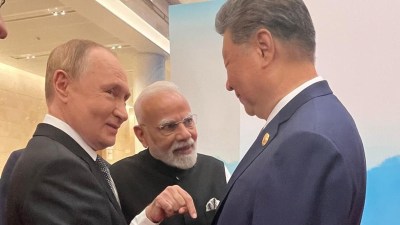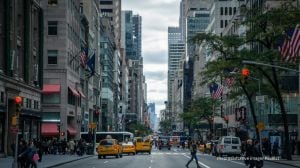Stay updated with the latest - Click here to follow us on Instagram
Year on,discom awaits PWD nod for solar signal
A year after it put in a request for installing solar-powered traffic signals at various points in the city,starting with Madhuban Chowk...
A year after it put in a request for installing solar-powered traffic signals at various points in the city,starting with Madhuban Chowk,the North Delhi Power Limited (NDPL) is still waiting for the Public Works Departments (PWD) nod to go ahead with its plans.
The plan is part of the larger Intelligent Traffic System project,supposed to be in place before the Commonwealth Games kicks off on October 3 next year.
The power distribution company (discom) had sought permission from the Delhi Traffic Police and the PWD more than a year ago to start work at the crossing on Madhuban Chowk,near Pitampura in West Delhi,to install these signals.
We needed permission from the PWD because we would like to use the rooftop of their booth in the area to place the photovoltaic panels, an NDPL official said,and we are still awaiting their response.
The Delhi Police had earlier expressed concern about the security of the photovoltaic panels,as they were being stolen in some locations where solar-powered signals were run on a trial basis. Only a few traffic signals in the city are solar-powered at present,including those at Nizamuddin,Moolchand,and Indira Gandhi International Airport.
Vivek Singla,general manager of NDPLs power management department,told Newsline: We have already purchased photovoltaic panels and installation work will begin at Madhuban Chowk as soon as the PWD gives the go-ahead. After that,the project will extend to some other areas,including the Old Secretariat.
We are in touch with the PWD chief engineer,who is responsible for the project,and we believe we are likely to get the approvals some time soon.
Once all approvals are in place,Singla said NDPL can complete installation in two or three days.
Besides being environment-friendly,solar-powered traffic signals are cost effective as well. Another benefit is the fact that the signals will continue to function even during powercuts,with stored solar generated energy.







